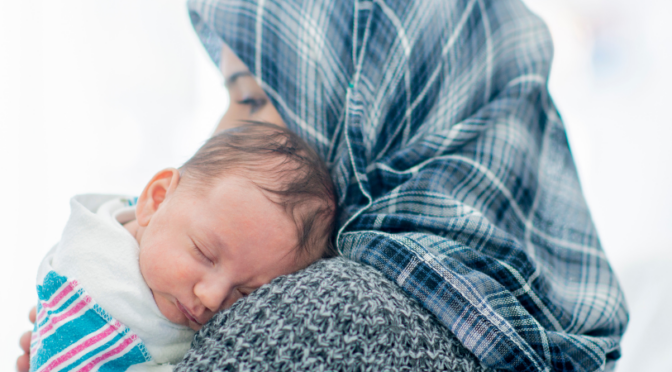Posted By: Nikki Wilson
10th November 2022
4 minute read

Many of us steel ourselves each year to read the MBRRACE’s Confidential Enquiry into Maternal Deaths in the UK and Ireland. The findings launched today are tragic; I think we probably all knew that they would be. The report covers the period 2018 – 2020, during which time we experienced our first lockdown and a light was shone on mental health and deep-seated deprivation and inequality in this country.
Before reflecting on today’s report, I want to explicitly acknowledge the importance of these enquiries. The methodology used is honourable, underpinned by a philosophy ‘to recognise and respect every maternal death as a young woman who died before her time, a mother, a member of a family and of her community’ (Gwyneth Lewis OBE, former Chair). Going well beyond the statistics, these reports tell stories. They are fundamental to how we learn lessons and save lives in the future.
For many years now, we have seen that suicide is the leading cause of direct deaths in the year after pregnancy. That has not changed. However, alarming new information this year is that:
Ever since the 1990s, when these reports first singled out mental health as a cause of death, we have seen that discrimination, disadvantage and deprivation are directly connected to poor outcomes for women, babies and families. Over recent years we have learned the sheer extent of ethnic disparities and this is an example of how the MBRRACE reports are so instrumental as a catalyst for change. We see the astonishing work of organisations including Five X More, Birthrights and The Motherhood Group inciting such inspiring challenges to deep systemic racism.
This enduring inequality continues to be deeply shocking and needs to be addressed. But, due to the sustained work of the authors of MBRRACE and the amazing women behind such powerful campaigns, we are beginning to see the outcomes of their work as the differences start to slowly reduce. We need hope, and even though the difference in outcomes due to ethnicity is still unacceptable, this is such an important example of how it is possible collectively to make change happen.
There are other inequalities, disparities and clear injustices that the report so powerfully exposes.
MBRRACE tells us that “many of the women who died, particularly those with a mental health problem or multiple adversities struggled to engage with health and social services”, and that “very few women who died by suicide in 2020 had formal mental health diagnoses, but significant numbers had a history of trauma”.
It is heartbreaking that all ten of the teenage mothers who died during this period had their babies removed. I find it very difficult to express my feelings about this into any adequate words.
I have been supporting and advocating for women and girls facing multiple disadvantages for the past 25 years, including homelessness, contact with the criminal justice system, addiction and domestic abuse. It is abundantly clear that these challenges are almost always manifestations of what has happened in childhood. Abuse, inequality and poor engagement with professionals are interlinked but the context of women’s lives is often overlooked. The most vulnerable get missed as they are overshadowed by prejudice, bias and barriers to services.
Services across the perinatal pathway (and indeed many other public services) are currently a long way from being designed to respond to women who have experienced trauma. However, the momentum for change is growing. The importance of these findings chime with so many conversations I have had with MMHA members and Lived Experience Champions, clinicians, and academics in recent months. There are already clear examples of great practice, but this is in spite of the system rather than because we have a system designed to support trauma-informed care.
The MBRRACE report this year adds to the sense of urgency we must all feel.
There are strong, clear recommendations of what needs to change and these need to be acted upon. As the lay summary says, this evidence shows a strong ‘impact on women’s health of the increasing inequalities in the United Kingdom. These maternal deaths are the tip of the iceberg, not a minority issue’. Embedding an understanding of discrimination and trauma across our perinatal services would transform the lives of women, babies and families and our dedicated workforce for generations to come.
The MMHA will do everything we can to support the report recommendations being acted upon and to raise the findings with decision-makers at all levels. We remain as committed as ever to campaign for all women, babies and families to be able to access high-quality and compassionate care and strive to challenge inequity and injustice at the heart of all we do.